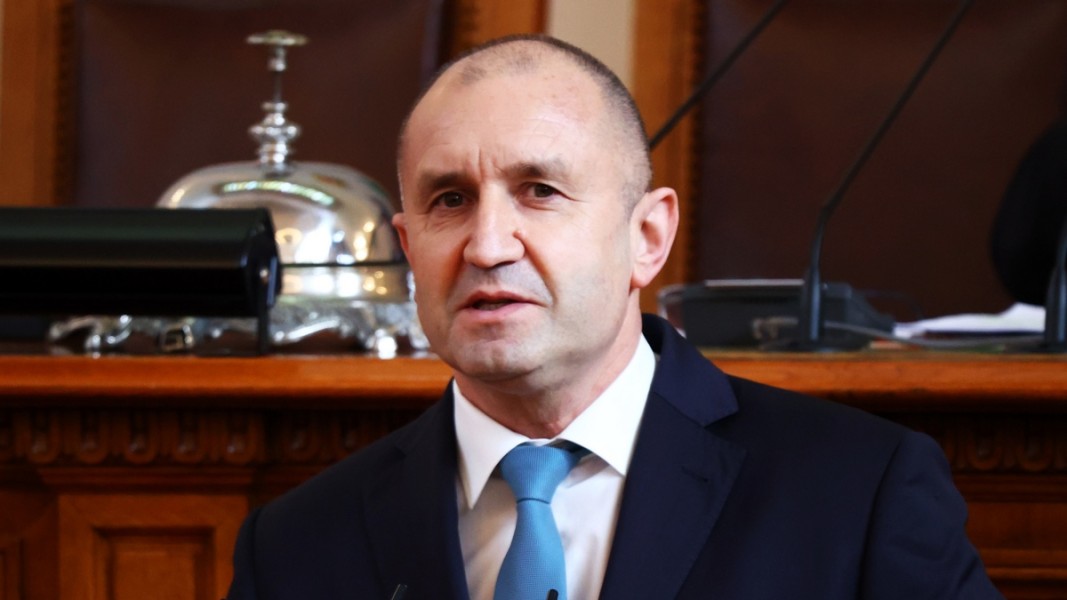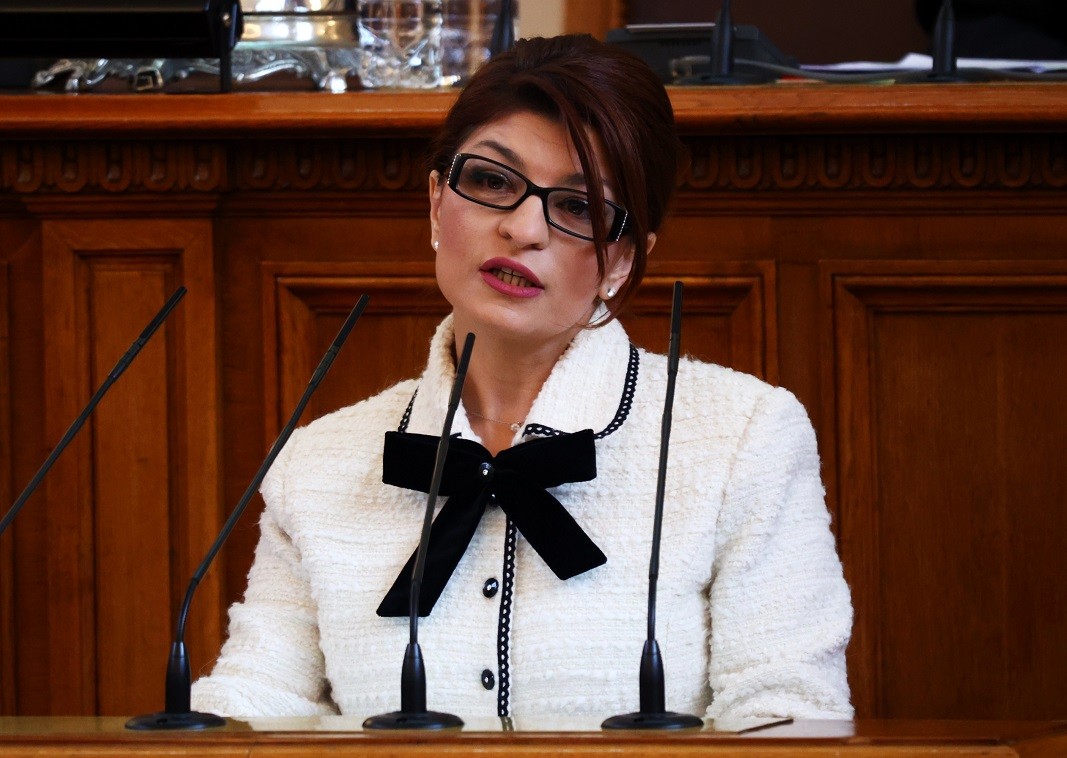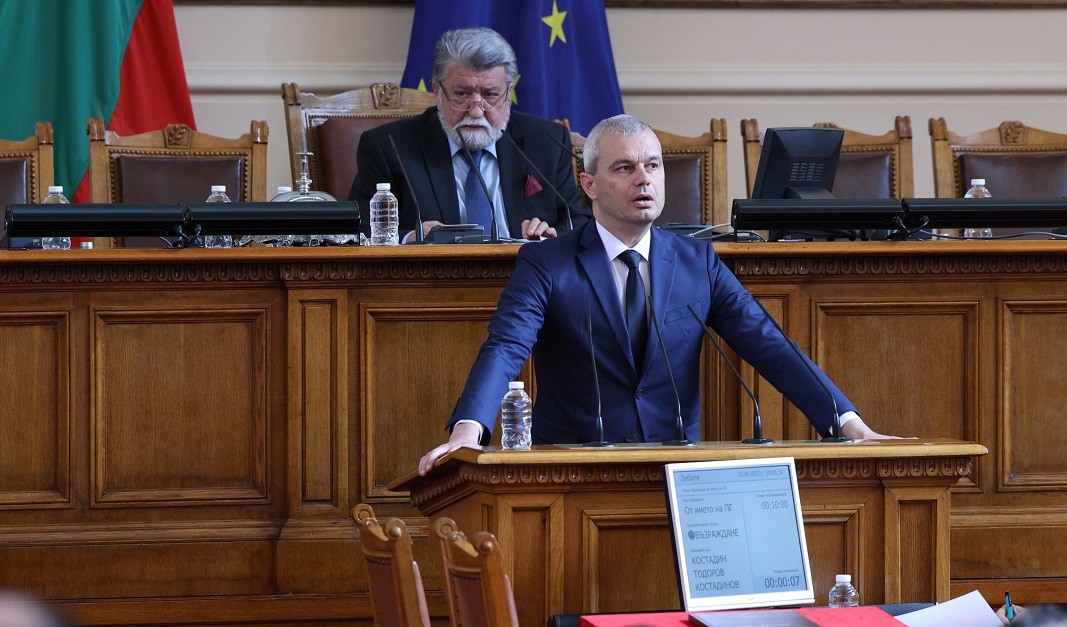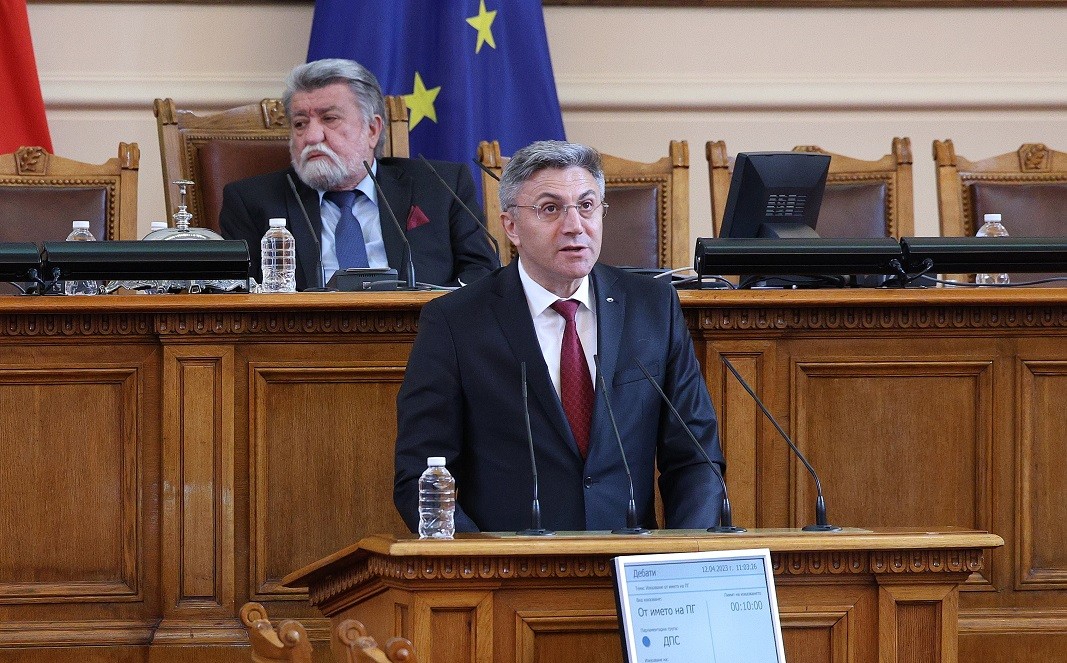“I prayed for common sense. I deeply believed that common sense is the one thing we need to give Bulgaria a chance of getting back on its feet.” With these words on Holy Wednesday, the most senior MP Vezhdi Rashidov from the coalition GERB/SDS declared the 49th National Assembly of Bulgaria open.
During the formal inaugural sitting, attended by President Rumen Radev, Vice President Iliana Iotova, the caretaker cabinet with PM Galab Donev, Prosecutor General Ivan Geshev, ambassadors accredited to this country, the new members of parliament took the oath to “observe the Constitution and the laws of the country and in all their actions to be guided by the interests of the people”. The ambassadors of Russia and Belarus were not extended a formal invitation to attend the opening of the National Assembly.
From the presidential chair, the doyen of the new parliament stated that the people are living more and more with a sense of insecurity, with a deficiency of any chance of unity or hope for better things.

“Unfortunately, today we are again encountering hate, a refusal to enter into dialogue, silly mantras about the past-future, complaisantly forgetting about the present. We, the people now living, are the only ones who can create what will be needed in the future. Even in Dante’s Divine Comedy, the road from hell to heaven passes through purgatory. The rest is abstract utopia for dreamers,” Vezhdi Rashidov said.
In his address to the members of parliament, President Rumen Radev pointed out that it is the MPs’ primary task to adopt the state budget “submitted by a regular government that will be committed to long-term policies and will shoulder the responsibility for them”. However, if this does not happen, then the caretaker cabinet will submit a draft budget of its own to parliament.

“I expect the National Assembly to give its support to the European course set down by the caretaker government, by approving the laws drafted with reference to the Recovery and Resilience Plan, laws that will accelerate the reforms needed for the modernization of the country,” Rumen Radev stated further. “I expect the National Assembly to prove that the judicial reform is a recognized, real target for our development as a fair and prosperous society, and not just an abstract question. I expect responsibility to be assumed for national security.”
In her address, Desislava Atanasova from GERB/SDS stated that the first political force (in parliament – editorial note) is ready to talk to all political formations represented in parliament and to take into consideration “the different arguments”. In her words, with their vote the public are demonstrating that the political crisis cannot be resolved by one party or coalition only.

“What these results have in common, results that set down clear-cut dividing lines in Bulgarian society, is that they point to the only way out of the current situation. Such a way out is only possible if the parties, in a spirit of mutual respect, attain acceptable compromises, accord on the issues of strategic importance to the country, and restore the political dialogue effectively,” Desislava Atanasova said.
On behalf of We Continue the Change-Democratic Bulgaria, former Prime Minister Kiril Petkov stated it was high time that politicians started to solve the problems of the people “not by empty rhetoric, but by way of a concrete programme that will reflect the genuinely important priorities Bulgaria faces”.

“Agriculture and assisting small- and medium-sized farms must become a national priority – it is not a normal thing to be importing 70% of the meat, 50% of the tomatoes and 30% of the milk,” he stated further. “Many regions in the country are completely cut off: with no motorways, no bridges, no tunnels, no railway lines. The whole of society wants an end to corruption and it is high time we adopted the law on the anti-corruption commission, as required by the Recovery and Resilience Plan.”
Kostadin Kostadinov, leader of the third political force, Vazrazhdane, declared that his party was ready to negotiate with the remaining political forces on five priorities: preserving our financial independence, not allowing Bulgaria to be involved in the war in Ukraine, or the bankruptcy of the country, renegotiating the country’s relations with the EU, defending the national interest. He also made a comment on the petition in support of a referendum for keeping the Bulgarian Lev up until 2043 submitted to parliament:

“Vazrazhdane wants the sovereign to have their say whether it is profitable to adopt the euro, whether it will make us richer, whether it will bring more security and improve our lives, or the opposite – make people poorer, depreciate their savings, and the country will lose its independence. In any case, we need to be honest with Bulgarians and protect our own national interest.”
The leader of the Movement for Rights and Freedoms Mustafa Karadayi laid emphasis on the need to elect a regular cabinet “with clear priorities and a plan of action that will carry out the preparations for the local elections”. “What the people wanted to let us know was clear – politicians must sit down at the negotiating table and start to talk to one another,” he added. “What each and every one of them needs to do, honestly and with a high sense of responsibility, is outline the priorities and the policies they are proposing, and the dialogue must be about them, and the Euro-Atlantic future we deserve.”

“Society today is divided on many issues,” Mustafa Karadayi said further. “But a majority can emerge that wants us to be part of the EU and of NATO, that wants us to be a democratic and financially stable country, that wants European living standards. The majority of the Bulgarian voters do not want early parliamentary elections, because they will not solve the problems, they will only make the severe political crisis worse.”
The coalition Bulgarian Socialist Party for Bulgaria will also work towards five priorities, BSP leader Kornelyia Ninova said – adoption of a social state budget, setting the Recovery and Resilience Plan in motion, combating corruption, pooling all efforts for Schengen.

“The fifth question is connected with war and peace – the BSP is for the neutrality of Bulgaria ing the war in Ukraine, it is against military support and troops, it is for a peaceful settlement by applying the diplomatic approach. For all this to become fact there has to be a functioning parliament and a regular government, and the decision for this is here, in this hall,” she added.
Ivaylo Valchev from There Is Such a People stated that its MPs would do everything they can to resolve the crises:

“We from There Is Such a People want practical solutions, in support of any act that will benefit the citizens of Bulgaria because the country’s problems are not problems of any political party, they are national problems. We shall invariably act as a corrective mechanism so that people will able to control the political class through us.”
As in the previous parliament, the MPs failed to elect a president of the National Assembly at the first vote. The nominations of Rosen Zhelyazkov from GERB/SDS and of Petar Petrov from Vazrazhdane did not garner enough votes, so Assen Vassilev from We Continue the Change-Democratic Bulgaria proposed that the post be held by the first and the second political force in rotation.
The first work day for the National Assembly started at 10.05 AM, and ended at 12.47 without electing a president of parliament.
Compiled by Diana Tsankova
Translated from the Bulgarian and posted by Milena Daynova
Photos: BTA, BGNES
Bulgaria’s National Assembly rejected the proposal by the Vazrazhdane party to summon Foreign Minister Georg Georgiev for a hearing regarding the vote by the European Parliament's Foreign Affairs Committee, which adopted a report on North Macedonia’s..
The European Parliament's Foreign Affairs Committee adopted the draft report on the Republic of North Macedonia's progress towards EU integration, with 40 votes in favour, 19 against and 10 abstentions. All Bulgarian proposals were rejected, including..
Serbia and Bosnia and Herzegovina refused to sign the SEECP declaration The summit of the South East European Cooperation Process (SEЕCP), held in Tirana under the Albanian presidency, ended without Serbia and Bosnia and Herzegovina..

+359 2 9336 661
